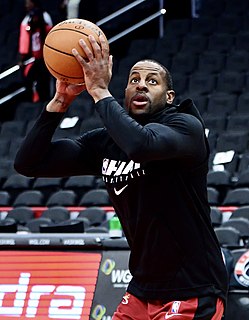A Quote by Ruth Reichl
The implications of Americans devoting their lives to fast food are more profound than the fact that our kids aren't eating well. There are real repercussions that we need to know about and think about.
Related Quotes
In 1970, Americans spent about $6 billion on fast food; in 2000, they spent more than $110 billion. Americans now spend more money on fast food than on higher education, personal computers, computer software, or new cars. They spend more on fast food than on movies, books, magazines, newspapers, videos, and recorded music—combined.
That eating should be foremost about bodily health is a relatively new and, I think, destructive idea-destructive not just the pleasure of eating, which would be bad enough, but paradoxically of our health as well. Indeed, no people on earth worry more about the health consequences of their food choices than we Americans-and no people suffer from as many diet-related problems. We are becoming a nation of orthorexics: people with an unhealthy obsession with healthy eating.
There is a profound injustice at the heart of the American economy. You look at the media and realize that these corporate-run commercial entities are failing to give Americans the information they need to make informed choices. You look at the food we're eating and the obesity epidemic and realize there is something fundamentally wrong about our nutritional habits. So across the board there is something fundamentally unjust about every aspect of our personal lives.
I think America's food culture is embedded in fast-food culture. And the real question that we have is: How are we going to teach slow-food values in a fast-food world? Of course, it's very, very difficult to do, especially when children have grown up eating fast food and the values that go with that.
I think Americas food culture is embedded in fast-food culture. And the real question that we have is: How are we going to teach slow-food values in a fast-food world? Of course, its very, very difficult to do, especially when children have grown up eating fast food and the values that go with that.
I think that's why I'm so well-suited to this time, because I think the values reflect really profound American values, and I think my agenda would be the best way to really get Americans once again to feel more confident and more optimistic about our future and deliver results, which I think is what it's about.
The way we eat has changed more in the last 50 years than in the previous 10,000…. Now our food is coming from enormous assembly lines where the animals and the workers are being abused, and the food has become much more dangerous in ways that are deliberately hidden from us. This isn’t just about what we’re eating. It’s about what we’re allowed to say. What we’re allowed to know.
Right now you're seeing more and more families reporting that they are skipping meals. They're having to give up meat. Mothers are foregoing food so their kids can have something. People are growing their own vegetables, not because they've gone organic, but because it's one of the few assured sources of food they have. For low-income Americans food is costly right now. The price of food has been going up, and wages haven't. This puts working Americans in a real bind. The fact that the mainstream media hasn't reported it doesn't mean that it's not happening.
I talk about the food issue, I'm really coming at it from pre-White House times, when I was a working mother with a busy husband, a very demanding job and two little kids to feed.... I had to learn what it means to feed and care for your kids in a country where fast food is abundant, where time is a rarity, where eating out is a trend, because families are so busy.... Yes, I'm First Lady, but I know the struggles.
We kind of know that food is necessary to survive. But our ways of connecting with food have been, in many ways, taken over by capitalism - certainly taken over by the influence large corporations have on the way that we eat and the way that we think about food. That's why kids these days are more prepared to take nutritional advice from Ronald McDonald than they are from their parents or their teachers or from scientists. And particularly in urban areas, you'll see kids who honestly believe tomatoes come from the supermarket rather than from a plant.
































